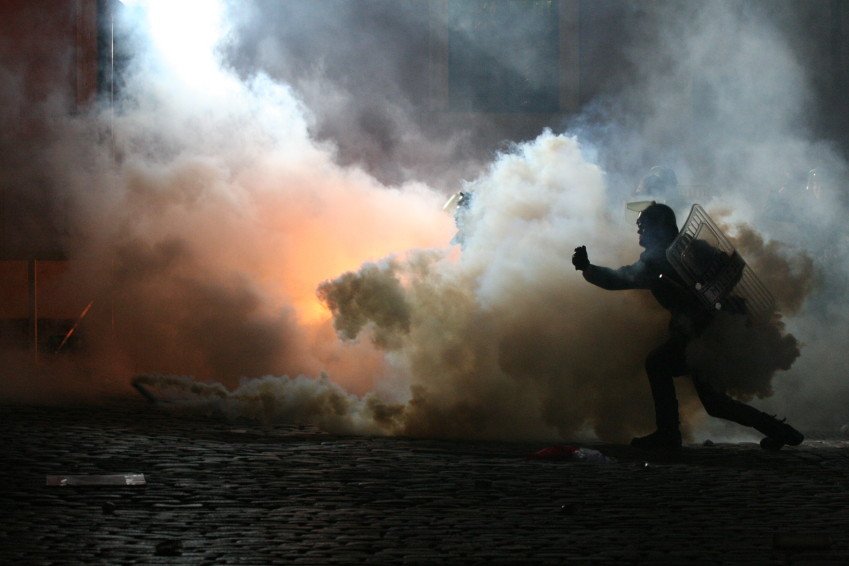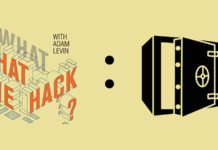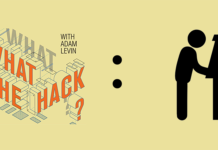

A dark army descends on Gotham. Hungry for power, possessed by delusion, its leaders will stop at nothing in their quest to destroy the work of honest men, intimidate those who fight for good, and force free citizens into cowed subservience. I am not talking about “The Dark Knight Rises,” the latest installment of the Batman franchise, the premier of which this Friday I (and the entire free world, it seems) am avidly waiting to see. No. The army of evil that troubles me far more is the one aimed squarely at the Consumer Financial Protection Bureau, which celebrates its first birthday this week.
The bureau, created two years ago as the centerpiece of the Dodd-Frank Wall Street Reform and Consumer Protection Act, is a critically important force for good in our economy. As it develops and matures, the bureau will be crucial in stopping predatory mortgages, bank fee gouging, credit card interest ponzi schemes, payday loan sharks and all manner of financial tricks invented by the financial services industry to fatten big banks’ wallets and fleece ordinary Americans. That’s good for consumers, it’s good for legitimate businesses, and it’s good for the long-term health of the banks themselves.
But the army of darkness isn’t in this game for what’s right. It is interested only in maximizing short-term profit and campaign contributions, even if it means destroying Gotham, the American electoral system (here’s lookin’ at you, Citizens United) and the American middle class. This cast of villains wants only one thing: deregulation. In the case of the CFPB, this means gutting it entirely. That’s because only deregulated markets offer the kind of volatility on which much of Wall Street now depends. The economy improves, or the economy drops off a cliff. It doesn’t really matter to Wall Street because either way, some traders will call their bets and reap billions in profit. And the good citizens of Gotham get taken by the house.
Wall Street’s cast of villains can’t kill the CFPB by themselves, of course. That’s why they bankroll a staff of senators, congressmen and now a presidential candidate. These elected officials act as the army’s public face, and they have been quite industrious in their efforts to kill the bureau from the start. First, Republican members of the U.S. Senate threatened a filibuster to prevent President Obama from nominating a director to lead the bureau. Elizabeth Warren, the Harvard Law Professor birthmother of the CFPB, was driven out of town. Then, the Gang of 45 signed a letter to the president demanding changes that would gut the bureau’s power, and responded with howls of fake indignation when the president (rightly) ignored them. They even pulled an obscure parliamentary trick to get Congress to try and prevent Obama from appointing a director while Congress was in recess (a ploy that the president also ignored, thank goodness).
None of the bad guys’ tricks has worked so far. But that doesn’t mean they’ve given up. They are a dogged lot. Already they’ve introduced nine separate bills to undo the most important protections created by Dodd-Frank. (Would you expect any less of a crew which has unsuccessfully voted to repeal Obamacare 33 times?) And Mitt Romney, this year’s standard bearer of Wall Street’s army of NoMads (“No you can’t,” and “I’m mad as Hell” Tea Party loyalists), has promised to gut the CFPB entirely if he wins the Oval Office this November.
In the spirit of service to Gotham and good citizens everywhere, I offer this compilation of leaders of Wall Street’s army of darkness. Over the last two years they have proven themselves to be persistent enemies of good government and the rule of law (remember fellas, Dodd-Frank is the law).
As you prepare to spend a couple hours in air conditioned splendor watching the Dark Knight kick some evil butt, keep this list in mind and ask yourself, “Who will be our guardian angel to protect us from these all-too-real forces of destruction?”
Rep. Spencer Bachus (R-AL) — “The Joker”
Rep. Bachus, chairman of the House Financial Services Committee, likes to think he’s funny. In a speech before the Community Bankers of America in May 2011, the Distinguished Gentleman (I use the term advisedly) from Alabama said that his opposition to the CFPB “Has nothing to do with Elizabeth Warren, it really has nothing to do with her.” And then, with a laugh, he added, “I will not take a lie detector test.”
The hilarity does not stop there. In 2010, Bachus told the Birmingham News, “In Washington, the view is that the banks are to be regulated, and my view is that Washington and the regulators are there to serve the banks. (emphasis added)” This brand of hubris and lunacy would have been funny if this point of view hadn’t already caused the largest financial crisis since the Great Depression.
This paragon of comedic irony has over the course of his congressional career (since 1992) been the recipient of some $5,876,134 in personal and PAC donations from the finance, insurance and real estate sectors.
Senator Richard Shelby (R-AL) — “Two Face”
Sen. Shelby likes to talk about how much he supports the consumer bureau’s mission. “Everyone supports consumer protection,” Shelby has said in press releases and committee hearings.
But his other face tells a different story. Shelby continually stretches the truth regarding the bureau’s power. He has called it “the most powerful, yet unaccountable agency in the federal government.” Not true, but that’s of little consequence to the Senator. In reality, the CFPB has more checks on its power than any other financial regulator, including the Financial Stability Oversight Council, which gives other agencies the power to veto any of the CFPB’s rules.
Since 1989, Senator Two Face has been the grateful recipient of $6,316,830 in personal and PAC donations from the finance, insurance and real estate sectors.
Rep. (and Speaker of the House of Representatives) John Boehner (R-OH) — “The Black Mask”
In Batman comic books, the Black Mask led a shadowy organization called “The False Face Society.” Like him, Rep. Boehner loves to paint his enemies with false faces. To prevent President Obama from naming a director to lead the CFPB while Congress was in recess, Boehner helped concoct a bizarre parliamentary ruse called “pro forma” sessions, which kept Congress nominally open by having a lone representative gavel the body into session each day (some “sessions” lasted just 30 seconds).
When Obama ignored this silly attempt to stymie a president from using his Constitutionally-mandated power to appoint people to the executive branch, Boehner exploded. “This is an extraordinary and entirely unprecedented power grab by President Obama that defies centuries of practice,” Boehner said, conveniently ignoring his own extraordinary and unprecedented power grab.
The Speaker also likes to talk a lot about lowering government spending, while doing his best to raise it. He says the budget that he is currently ushering through Congress would reduce spending on the CFPB, which this year represents $356 million. But bringing the bureau under Congressional budget authority would actually increase the burden on taxpayers, since currently the bureau’s money comes from the Federal Reserve, which is paid by lenders.
Why would Boehner be so quick to shift costs from big banks onto taxpayers? I don’t know, but I do know this: Since 1989, the Speaker has raked in $6,755,192 in personal and PAC donations from the finance, insurance and real estate sectors.
Senator Mitch McConnell (R-KY) — “Mr. Freeze”
Sen. McConnell has pledged to do everything he can to put the administration’s consumer protection agenda (well, actually any Obama agenda) on ice, and he’s not above using a little hyperbole to do it. McConnell apparently (and falsely) believes that the CFPB Director has enough power to “bring down the banking system in this country if he chose to, because he has unlimited power.”
Consider this: When President Obama’s drug czar, Gil Kerlikowske, visited Kentucky in February, McConnell welcomed him with open arms. But when it came to protecting consumers, McConnell suddenly changed his tune. “Yes, here’s the problem: this new agency answers to no one, absolutely no one — another unelected czar. We’ve got a bunch of those in the White House. We don’t need any more of them,” McConnell said to Fox’s Chris Wallace.
Perhaps Sen. Freeze was for czars before he was against them (sound familiar?).
In any event, the Gentleman from Kentucky has taken in $6,887,747 since 1989 in personal and PAC donations from the finance, insurance and real estate sectors.
Mitt Romney (R-Mass.) — “Bane”
A villain of intense strength and intellect, Bane once succeeded in breaking Batman’s back. And Romney, the man who got rich at Bain Capital in part by sending American jobs overseas, would love to break Obama’s back over the CFPB if he wins the keys to the White House this November. Even though Romney isn’t exactly a darling of Congressional Republicans (but, hey, what choice do they have?), he recently applied his Etch-A-Sketch skills to pick up Rep. Bachus’s rhetoric, recently calling the CFPB “the most powerful and unaccountable bureaucracy in the history of our nation.”
If elected, this would-be leader of Wall Street’s army of darkness has a two-pronged approach to killing the CFPB. First, he promises to repeal the Dodd-Frank Act (after he repeals “Obamacare,” of course). If that doesn’t work, in May his top economic advisor, Glenn Hubbard, said that Romney would gut the bureau either by moving it out of the Fed or breaking it up and giving its powers to other agencies — which was precisely the type of ineffective-decentralized regulatory mess the CFPB was designed to reform.
Somehow, even in the midst of incessant attacks from this cast of masked villains, the Consumer Financial Protection Bureau has managed to do good. While dealing with a broad array of regulatory responsibilities, it created a simple, three-page contract for mortgages and credit cards, opened investigations into the secretive worlds of credit reporting and debt collection, solicited and published tens of thousands of complaints against financial institutions and chronicled their responses thereto, and has started effective programs to teach financial literacy to students and veterans.
Batman just wants to do his job of protecting Gotham from crime. And the CFPB wants to do its job of protecting consumers from financial predators. Perhaps as the Dark Knight Rises to defeat the princes of evil, American voters should finally stand up to this army of darkness.
Originally posted at the Huffington Post.









